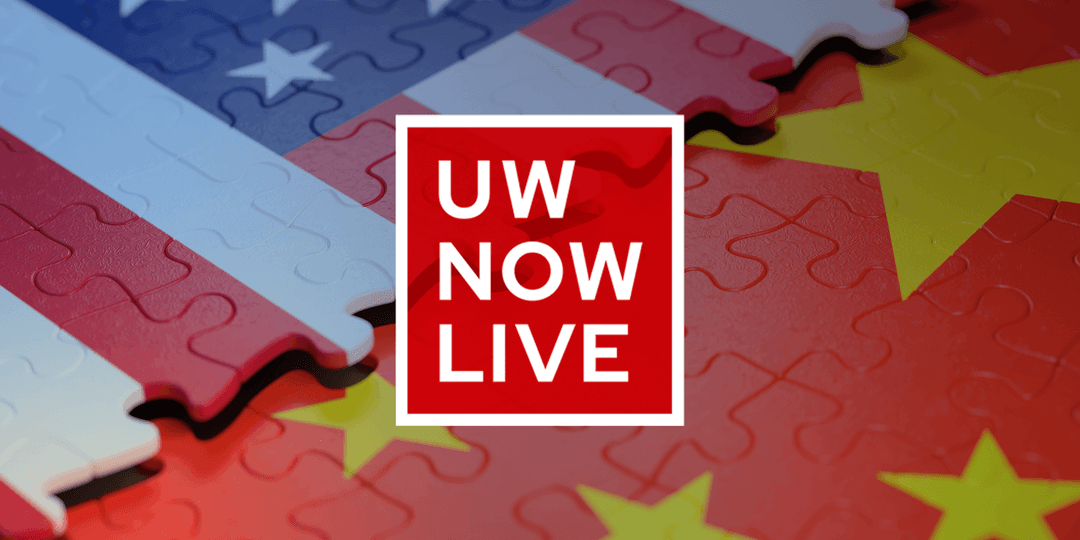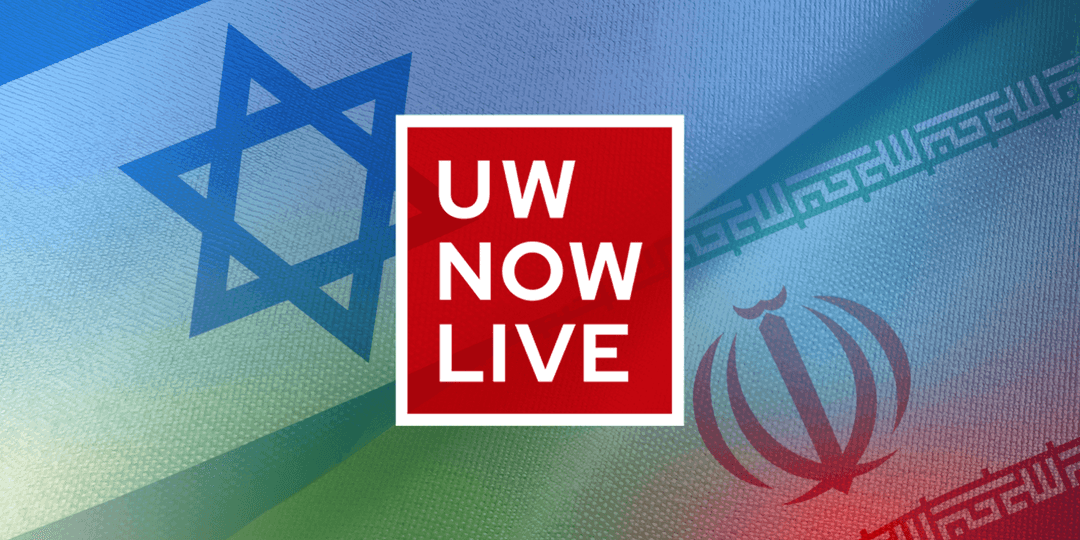“What happens next?” Andrew Kydd mused to the audience of the July 2025 UW Now Live.
The UW–Madison professor of political science, who studies strategy and nuclear proliferation, looked at the military action that Israel and the United States had launched against Iran in the previous month, and he wondered what could be done to keep Iran from gaining access to nuclear weapons. “The bombs have stopped falling, for now anyway. Is there going to be a diplomatic push? … Should we return to negotiations? What would that look like?”
Kydd joined fellow political scientist Jon Pevehouse and host Mike Knetter to talk about Israeli and American policy and the conflict over Iran’s nuclear ambitions. He described the evolution of America’s relationship with Iran, from the Cold War through the 1979 Islamic Revolution to today.
Kydd noted that much of the international community would like to prevent Iran from becoming a nuclear power, but there are only two paths to that goal: diplomacy and military action. The diplomatic path hit its zenith in the Obama-era Joint Comprehensive Plan of Action (JCPOA), the multination effort to convince Iran to halt nuclear weapons development in exchange for sanctions relief.
“Trump comes in in 2017,” Kydd said, “and eventually, after hemming and hawing for a couple of months, decides to withdraw from the deal. That’s sort of an epochal event in the path to where we are today. He withdrew from the deal and imposed sanctions on Iran that he believed were going to be more successful and more coercive than the ones that were applied previously. And that didn’t succeed.” As a result, military action was the only remaining option.
Pevehouse considered the 12-day conflict from the perspective of each of the nations involved, looking at how their internal politics guided events.
“In all three countries,” he said, “there are some interesting dynamics that may have shaped the decision to do this in the first place, and certainly shaped the prosecution of the war, and will certainly shape the negotiations which come next.”
For the United States, the Trump administration had come to power promising an end to forever wars and efforts at regime change, and many in the Republican base complained about Trump’s willingness to enter a conflict in the Middle East. “You saw an immediate narrowing of the scope of the rhetoric of Trump and what was going on,” Pevehouse says. “That’s a realization of these domestic political forces.”
In Israel, Benjamin Netanyahu’s governing coalition faces internal problems, and he may have launched strikes on Iran in part to boost his public standing. “Netanyahu’s domestic coalition is very tenuous because of the war in Gaza,” Pevehouse said. “He himself is fairly unpopular, still being blamed for the October 7 attacks. Many people thought there would be a significant rally effect with the bombings in Iran.”
The Iranian government made a speedy push for peace in part due to its domestic unpopularity. However, Pevehouse cautions that those hoping for regime change are likely to be disappointed, at least in the near future. “If there was going to be a revolution inside Iran, it would’ve happened quickly,” he said, “and we haven’t seen it.”
Ultimately, Kydd argues that the June strikes may have been the best path forward. But their success or failure lies in whether the U.S. and Israel can prevent Iran from acquiring nuclear weapons. “The big question, at the end, is would we have been better off sticking with JCPOA?” he asked. “If the attacks weren’t that effective, then this was a big mistake.”



